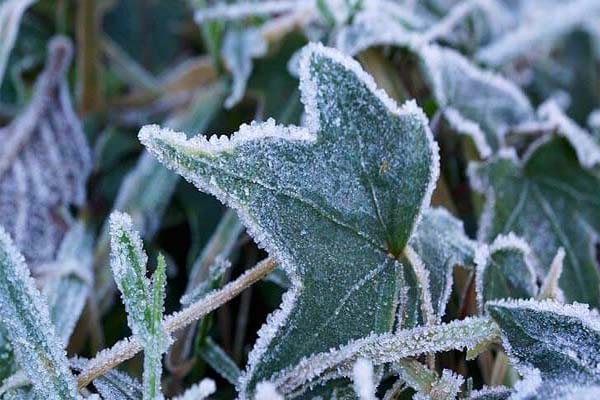The National Weather Service has issued a freeze watch for our entire area excluding the extreme coastal Horry and Georgetown county areas (right along the beaches.) Temperatures by Sunday morning are expected to dip into into the upper 20s to low 30s. The main threat with freezing temperatures will be damage to crops, seedlings and plants that have already started to bloom. So what should you do to protect tender vegetation?
Unexpected freezes can devastate landscapes and gardens. It can leave homeowners wondering how to protect plants from freezing and exactly what is the best way to cover and keep plants from freezing. Should you cover plants? Should you water your lawn? Should you do anything at all? Here are some tips for being prepared.
How to Protect Plants from Freezing

You may be able to protect plants during a freeze simply by covering them with a sheet or a blanket. This acts like insulation, keeping warm air from the ground around the plant. The warmth may be enough to keep a plant from freezing during a short cold snap like we’re expecting Sunday morning. For added protection, you can place plastic over the sheets or blankets to help keep warmth in. Never cover a plant with just plastic, however, as the plastic will damage the plant. Make sure a cloth barrier is between the plastic and the plant.
Another way to protect plants during freezing temps is by heavily mulching the roots of the plants with either wood mulch or pine straw. For added protection, you can actually place gallon jugs of warm water into the mulch at night. This will help drive off some of the cold that can kill the roots. There is some debate as to whether this method of action really serves to protect any better than heavy mulching or covering with a blanket. And since this forecasted freeze is only expected to last a few hours one night, covering and mulching are probably sufficient for your tender vegetation.
Watering the soil (not the leaves or stems of the plants) will also help the soil retain heat and can help the plant’s roots and lower branches survive. Wet soil holds heat better than dry soil, protecting roots and warming air near the soil. As soon as the temperature warms up past freezing Sunday morning, remove the blankets or coverings so the plants can get the sunlight they need.
Don’t Overreact to Freezing Temps
Plants can be remarkably resilient. If you see signs of frost damage, do not prune off the affected parts or dig up the plant immediately. This is especially true for palms. Wait until the weather warms up again to see whether new leaves sprout. You may see healthy new growth at the base of the plant, at which point you can prune out the damaged parts. If no regrowth is noted, remove the dead specimen and replace it as necessary.
Should You Water Your Lawn Ahead of Freezing Temperatures?
Watering before a freeze could be more damaging than doing nothing. When a sprinkler system comes on during the freeze and turns off before the freeze is over, damage can be severe. As for your lawn, watering must begin when the temperatures drops to 32ºF and must continue until the temperatures rise above 32ºF. Watering must be such that the water is evenly distributed and ample enough to maintain a film of liquid water on all of the grass surfaces. This practice is impractical and not recommended for homeowners since home irrigation systems are usually inadequate for such extensive water delivery. Most irrigation systems are on zones, and to water your entire lawn to protect it from freezing can be a nightmare.
Water pressure may also drop dramatically if several homeowners in the same area turn on their systems at the same time, making adequate water delivery impossible. Several hours of irrigation may be necessary and this can cause soil saturation resulting in root rot. It also wastes large quantities of water. Our advice, don’t do it.
As a worst case scenario, should the freeze be hard enough to cause your lawn to brown out temporarily, it will come back upon the return of warm weather, which is forecast to follow the Sunday morning freeze all next week.
If taking care of your own lawn is not your idea of fun, let the professionals at Super-Natural Landscaping take care of all your lawn needs this season. Give us a call at (843) 246-5598, or fill out our brief form and we’ll get back to you shortly. To get more Myrtle Beach landscaping tips, as well as tips for any of your landscaping projects, visit us on Facebook.

